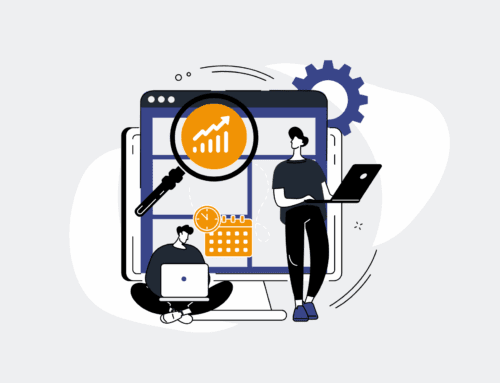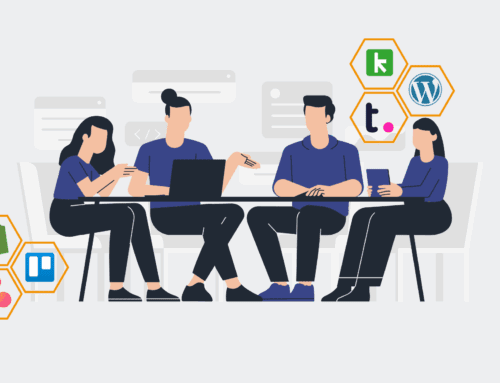Unlocking Potential: How Predictive Analytics Revolutionizes Onboarding Personalization for New Employees
The first few weeks and months are critically formative for any new employee. It’s a period where expectations are set, culture is absorbed, and the foundation for long-term engagement and productivity is laid. Yet, for countless organizations, onboarding remains a largely generic, one-size-fits-all process. This traditional approach often falls short, leading to disengagement, prolonged ramp-up times, and ultimately, preventable talent churn. At 4Spot Consulting, we understand that true employee success begins with a deeply personalized integration, and this is where the transformative power of predictive analytics comes into its own.
Imagine an onboarding experience that doesn’t just guide new hires through paperwork and standard orientations, but intelligently anticipates their unique needs, potential challenges, and optimal pathways to success. This isn’t a futuristic fantasy; it’s the immediate reality made possible by integrating predictive analytics into your onboarding strategy. We’re talking about moving beyond reactive measures to a proactive, data-driven approach that tailors the new-hire journey from day one, fostering engagement, accelerating proficiency, and building a stronger, more resilient workforce.
The Critical Shift: From Generic Handbooks to Dynamic Personalization
For decades, onboarding has largely consisted of standardized checklists, broad training modules, and an often overwhelming deluge of information. While necessary, this static model frequently overlooks the individual nuances that define each new hire. Every employee brings a unique background, a distinct set of skills, and specific aspirations. A generic onboarding process struggles to acknowledge these differences, treating everyone as though they have the same learning style, require the same support, or possess identical prior knowledge. The result? Disconnected employees, inefficient learning curves, and a missed opportunity to truly integrate talent.
Predictive analytics, however, changes this paradigm entirely. By leveraging historical data—from previous employee performance and retention rates to candidate assessment outcomes and even internal engagement metrics—organizations can build sophisticated models that predict individual employee needs. This foresight allows for the dynamic creation of an onboarding journey that is not just relevant but deeply personal, guiding each new hire along the most effective path to becoming a fully integrated, high-contributing team member. It’s about moving from a reactive “what happened?” to a proactive “what will happen?” and, crucially, “how can we optimize it?”
How Predictive Analytics Elevates Onboarding Personalization
Tailored Learning Journeys and Skill Development
One of the most immediate benefits of predictive analytics in onboarding is the ability to craft highly individualized learning and development paths. By analyzing a new hire’s pre-employment assessments, resume data, interview performance, and even their stated career goals, predictive models can identify specific skill gaps or areas where additional support might be beneficial. Instead of enrolling everyone in the same general training, predictive analytics can recommend targeted modules, specialized resources, or even specific mentorship connections that directly address their developmental needs, ensuring faster time to proficiency and greater job satisfaction.
Optimized Mentor Matching and Peer Connections
The success of a mentorship program often hinges on the quality of the match. Traditional methods can be arbitrary, leading to mismatched pairs and ultimately, underutilized resources. Predictive analytics can revolutionize this. By analyzing personality traits, work styles, departmental roles, and even hobbies (where appropriate and ethical), models can identify the most compatible mentor-mentee relationships. This data-driven matching ensures that new hires are paired with colleagues who can provide not just professional guidance, but also cultural integration support, fostering stronger bonds and a deeper sense of belonging from day one.
Proactive Engagement and Risk Mitigation
Employee churn during the onboarding phase is a costly problem. Predictive analytics can act as an early warning system. By monitoring engagement metrics—such as activity in internal communication platforms, participation in onboarding activities, and survey responses—and comparing them against successful hire profiles, the system can flag employees who might be at risk of disengagement or dissatisfaction. This allows HR and managers to intervene proactively with targeted support, check-ins, or resources before a minor concern escalates into a resignation. It shifts the focus from repairing damage to preventing it.
Enhancing Cultural Integration and Belonging
Beyond skills and tasks, successful onboarding is about cultural integration. Predictive insights can help identify which aspects of company culture might resonate most strongly with a new hire, or where they might need additional support to assimilate. This could manifest in personalized introductions to affinity groups, recommendations for internal events aligned with their interests, or even customized communication about company values that are particularly pertinent to their role or background. The goal is to make every new employee feel seen, valued, and genuinely part of the team, accelerating their sense of belonging.
Implementing Predictive Personalization: A Strategic Imperative
Integrating predictive analytics into your onboarding strategy isn’t just about deploying a new piece of software; it’s a strategic shift that requires careful planning and execution. It involves defining clear objectives, identifying relevant data sources, ensuring data quality and privacy, and building robust analytical models. For many organizations, the sheer volume and disparate nature of HR data can be a daunting challenge. This is precisely where 4Spot Consulting excels. We specialize in automating and integrating complex business systems, leveraging tools like Make.com and AI to create seamless data flows and intelligent processes.
Our approach, starting with an OpsMap™ diagnostic, is designed to uncover existing inefficiencies and identify opportunities where AI and automation can deliver significant ROI. For onboarding, this means architecting solutions that gather and process relevant data points from various HR tech systems, feed them into predictive models, and then trigger personalized actions and communications. We don’t just implement technology; we build a strategic framework that ensures your investment in intelligent onboarding translates into measurable improvements in retention, productivity, and overall employee experience. The outcome is an onboarding process that is not only highly personalized but also scalable, efficient, and continuously optimized, allowing your high-value employees to focus on strategic initiatives rather than manual coordination.
The future of onboarding isn’t about doing more; it’s about doing smarter. By harnessing the power of predictive analytics, organizations can move beyond generic greetings to create truly transformative, personalized experiences that lay the groundwork for long-term employee success and, by extension, sustained organizational growth. This is the intelligent onboarding revolution, and it’s happening now.
If you would like to read more, we recommend this article: The Intelligent Onboarding Revolution: How AI Drives HR Excellence and New-Hire Success








